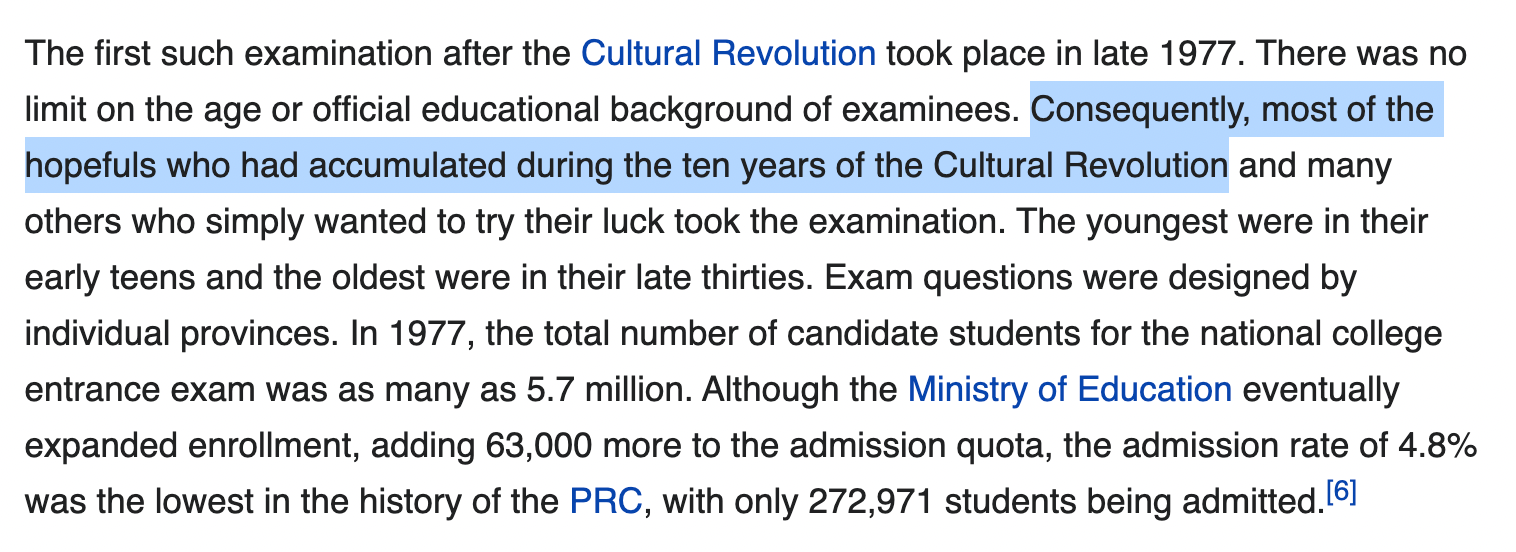We often think of resilience as sticking it out in a tough situation. Your flight was delayed and you missed your layover so you got rebooked for the next morning. You have to stick it out at the airport (something I had to do earlier this year ago).
But resilience also sometimes means GTFO—Getting The Fuck Out of the situation. I wrote this piece around Father's Day and my dad is the master of hanging on, of sticking it out.
During the Cultural Revolution in China, he was sent to work in the rural countryside as a teenager and do essentially hard labor as a farmer. He got up early in the morning, worked in rice fields, drank muddy river water, ferried boats filled with manure up the river, and slept in a building with no heat in the winter.
When the Cultural Revolution finally ended a decade later, Dad took the gao kao the big standardized test to see what college he could get into. He studied his ass off and earned the top score in his county despite only finishing the 7th grade, which allowed him to attend a great school.

Eventually Dad made his way out to the US, got a doctorate in education from Boston University and takes a position at the Massachusetts Department of Education, where he worked for the next quarter century, and just retired earlier this year.
Dad stuck through rural labor, grad school, horrible bosses, and a 30 year mortgage.
But there's a different kind of resilience. The resilience of moving on. Of cutting and running.
Seth Godin talks about this in The Dip:
Winners quit fast, quit often, and quit without guilt
Sometimes you need to move to a new environment to make opportunity work for you.
I've had 8 full-time jobs in a 13-year career. After sticking it out on my old team at work for almost two years, I finally made a switch and am thrilled to have done so. I was trying to do something different. I was practicing Dad's way.
That experience taught me a valuable lesson. You stick it out when you're in a place that eventually is showing great returns and great outcomes. With my new team, success is more clear. That doesn't make it easier per se, but it's hard to hit even a big target if the field is covered in fog.
I recently connected with an associate product manager at a healthcare startup via Merit. This APM was working there while finishing her master's degree (in person on the East Coast) and recently moved to the company's headquarters (on the West Coast).
In the last few months the director of product and several senior product managers have left the firm and she's now the most senior PM while supporting a few product interns. The CEO hired a project manager whose doing much of the coordination work often necessary in an early stage company. Plus she wasn't even reporting to this guy.
Her initial question to me was how she could take more initiative at work and contribute more given this leadersip vacuum, which is a very thoughtful and admirable intention. She was asking for advice on how to stick it out.
But I actually suggested the opposite. Consider moving on:
"I don't know if you should be here. I think you consider looking a new job. Having effectively the entire product team turn over in a relatively short amount of time is a very bad sign for someone just starting their career."
It turns out the CEO was a bit of a temperamental and vindictive person. While she was on his good side now, there's a huge chance she would eventually clash with him or otherwise be forced to make decisions against her values. My concern was that her efforts would likely be unappreciated by the project manager or CEO.
She would learn definitely learn something from the experience, but would it be worth the trouble? Why not use this mass exodus as your reason to move on as well? It would be a perfectly understandable reason to any sane hiring manager.
Resilience change is all about adapting. Sometimes it's about hanging on, sometimes it's getting the fuck out of dodge so you can get into a safer, healthier situation instead.
Wrapping up with this relevant TikTok.
@phong.thieu Reply to @gypsysmom77 Multiple Leaders Exiting, Red Flag 🚩? #layoff #thegreatresignation #signs #career #softwareengineer #techtok
♬ MEAN! - Madeline The Person

